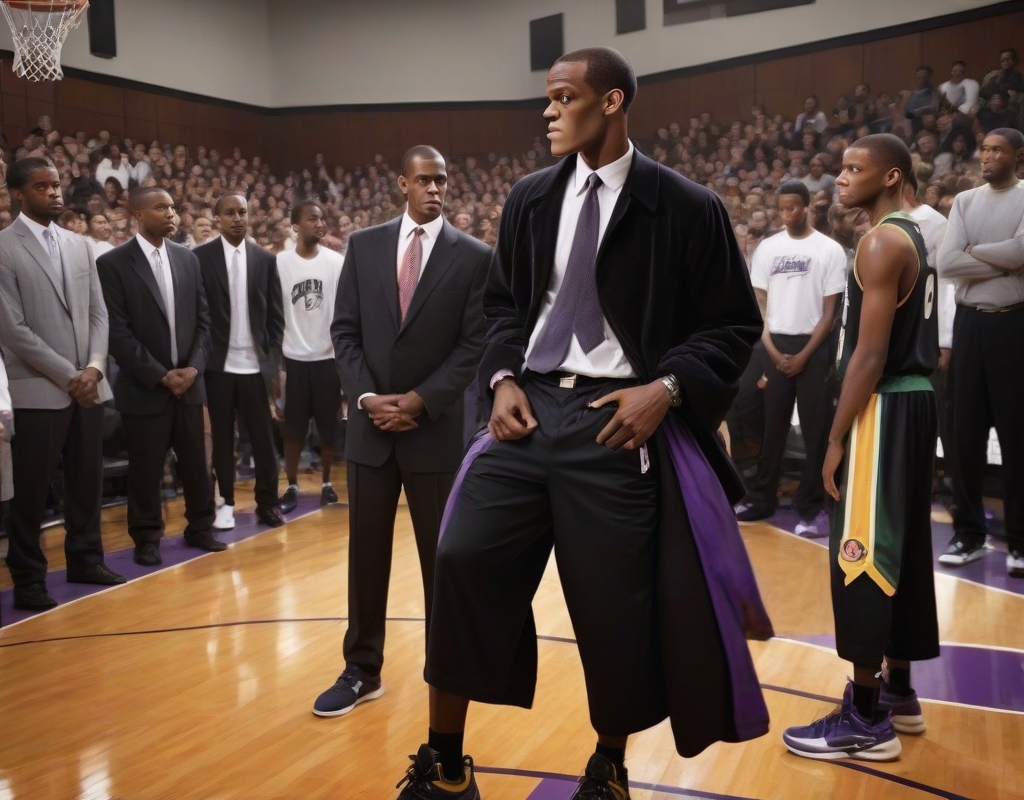On a quiet evening in late January 2024, an everyday traffic stop unfolded in Jackson County, Indiana, that would thrust former NBA star Rajon Rondo into the headlines—but not for his sports achievements. While driving his black Tesla, which lacked a rear license plate, Rondo was pulled over by local law enforcement. Recognized by the officers for his notable career, which includes playing for teams like the Boston Celtics, Rondo soon found himself at the center of a legal dilemma.
The officers, making small talk about Rondo’s basketball career, soon shifted the tone of the encounter after detecting the smell of marijuana coming from his car. Their subsequent search yielded a small quantity of marijuana, drug paraphernalia, and, more troublingly, a firearm. This discovery led to Rondo’s arrest on multiple charges, including possession of paraphernalia, marijuana, and illegal possession of a firearm, marking the beginning of a significant legal battle that could have marred his reputation and post-NBA pursuits.
However, the seriousness of these charges culminated in a plea deal in September 2024, where Rondo consented to plead guilty to a misdemeanor for unlawfully carrying a handgun. In exchange, the drug charges were dropped, and though he faced a potential 180-day jail sentence, it was suspended in favor of probation, assuming he adhered to the terms laid out by the court.
The intertwining of law and sport in Rondo’s case is peculiarly timed as he pivots from active NBA play into mentoring roles, recently observed contributing informally at events such as the Milwaukee Bucks training camp. His ongoing presence in the NBA environment, accentuated by figures like Doc Rivers expressing expected frequent sightings of Rondo, highlights his ongoing influence despite his legal entanglements.
Rajon Rondo’s intellect on the court has always been praised, particularly during his prime with the Celtics, where he was celebrated for his strategic gameplay. It’s this acumen that makes his potential transition into coaching a plausible next step, despite the inherent challenges and personal adjustments it would require. As much as this move demands a significant shift, Rondo’s strategic prowess could well serve him in coaching roles, mentoring budding athletes through not just plays, but life lessons.
Off the court, however, Rondo’s journey through the legal system underscores a path toward redemption and rehabilitation, a common narrative for public figures sidetracked by legal woes. His focused public appearances at NBA occasions imply efforts to anchor his reputation positively as he adheres to the probation conditions.
The historical precedent of athletes grappling with legal issues extends far beyond Rondo, encapsulating a spectrum of challenges that often disrupt athletic careers. The sports industry has routinely navigated the delicate balance of managing its stars’ public personas, accountability, and onboard support for those who falter. In Rondo’s scenario, there’s potential for life beyond his playing days to serve as a cautionary and educative tale for upcoming stars.
As Rondo moves forward, balancing legal obligations with potentials in coaching and other NBA roles, his tale exemplifies the intricate overlay of personal trials amid professional endeavors. His experiences within the sports industry could potentially catalyze discussions about the welfare of athletes, the role of legal interventions in personal transformations, and the extended support systems within sports industries that guide players across their careers.
Rajon Rondo’s experience might still evolve into a fuller coaching role or another substantial contribution to basketball, marking a significant chapter of resilience and renewal in his post-player life. His narrative remains a poignant reflection on overcoming personal adversities while contributing meaningfully to the sport he loves, potentially resonating as an inspiring beacon for athletes globally navigating similar paths.




